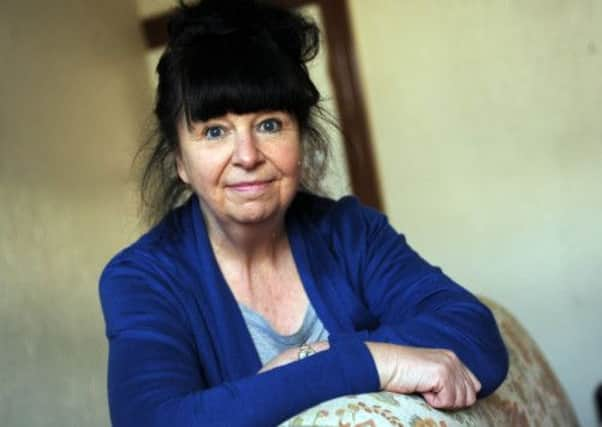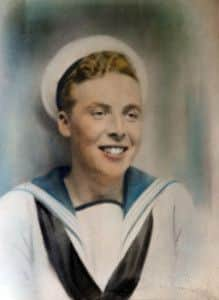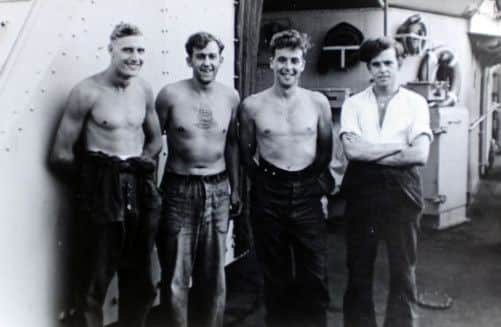Medal came too late for hero of Arctic convoys


But for one Yorkshire family it has meant heartache as the announcement had come just too late.
Ernest Schofield, 91, died the day after it was made but never heard the news that he and his colleagues were about to receive a medal for the heroic service they gave during World War II.
Advertisement
Hide AdAdvertisement
Hide AdHis daughter Sandra Vowles, 65, from East Ardsley, Leeds, told of his family’s sadness that her father had missed out on the recognition he had waited so long for.


She said: “It makes me feel sad. I wish we had heard the news when it was announced.
“After his family the Navy was his life. He was very proud of what the people in the convoys did.
“He stayed in touch with it all. He was part of the Royal Navy Association in Leeds and loved going to the meetings of the Russian Convoy club in Dewsbury and he would always go to the Remembrance Day service in Morley.
Advertisement
Hide AdAdvertisement
Hide Ad“He would have been very pleased to hear about the medals being given out – not just for him but for all of those he served with.


“It is an acknowledgement of what these men did and I think that this is all they wanted.”
The battle to receive a service medal has been a long one for Arctic Convoy members.
It is thought between 200 and 400 sailors – all now in their late 80s at their youngest – survive from the four-year-long campaign, a mission Winston Churchill acknowledged was “the worst journey in the world”.
Advertisement
Hide AdAdvertisement
Hide AdThousands of seamen lost their lives as both merchant vessels and Royal Navy ships were hit as they carried supplies through icy waters and Nazi attacks to keep the Russian war effort alive on the eastern front.
Until now Arctic Convoy veterans have not been given their own campaign medal in the UK but were told they were entitled to the Atlantic Star medal.
However Arctic veterans have always stressed that their campaign had different aims and different conditions from those in the Atlantic – and should have been recognised with a specific medal. In 2006, an Arctic Emblem lapel badge was also introduced.
The decision that Arctic Convoy veterans should get their own medal was announced by Prime Minister David Cameron in December following an independent review by Sir John Holmes.
Advertisement
Hide AdAdvertisement
Hide AdHowever at this point veterans did not know when the medals would start to be awarded or what the exact eligibility criteria would be.
It was only at the end of last month that Veterans Minister Mark Francois confirmed that the medals would now be awarded immediately.
Despite this long wait for recognition, Mrs Vowles told the Yorkshire Post that her father had never been bitter about it.
She said he came from a generation who had been happy to do their duty for their country.
Advertisement
Hide AdAdvertisement
Hide AdNow she plans to apply for the medal on his behalf as something that can be passed down the generations of Mr Schofield’s family.
Mr Schofield was born in 1921 and grew up in Ashton-under Lyme. He joined the Royal Navy as a 17-year-old and served his country throughout both World War II and the Korean War. He married his wife Claire from Leeds, and settled in Yorkshire.
After leaving the Navy he worked as a heating engineer and for Leeds University as a research technician.
His daughter said the Navy had continued to be an important part of his life – particularly after his retirement.
Advertisement
Hide AdAdvertisement
Hide AdHe was a member of the West Riding branch of the Russian Convoy Club, a group of men now in their late 80s and early 90s who had served their country in the Royal Navy, merchant navy or in the Royal Marines.
Mr Schofield has two grandchildren and three great-grandchildren and Mrs Vowles said his family were proud of the service he gave his country.
She said his stories had only ever made the Navy sound exciting and he had not spoken of the hardship he had faced.
“He was called up for the Korean War, although he spent a lot of it in the Caribbean.
“I didn’t really know my father until I was seven. My early memory of him was of a colourful postcards, exotic gifts and a man in uniform who collected me from school.”